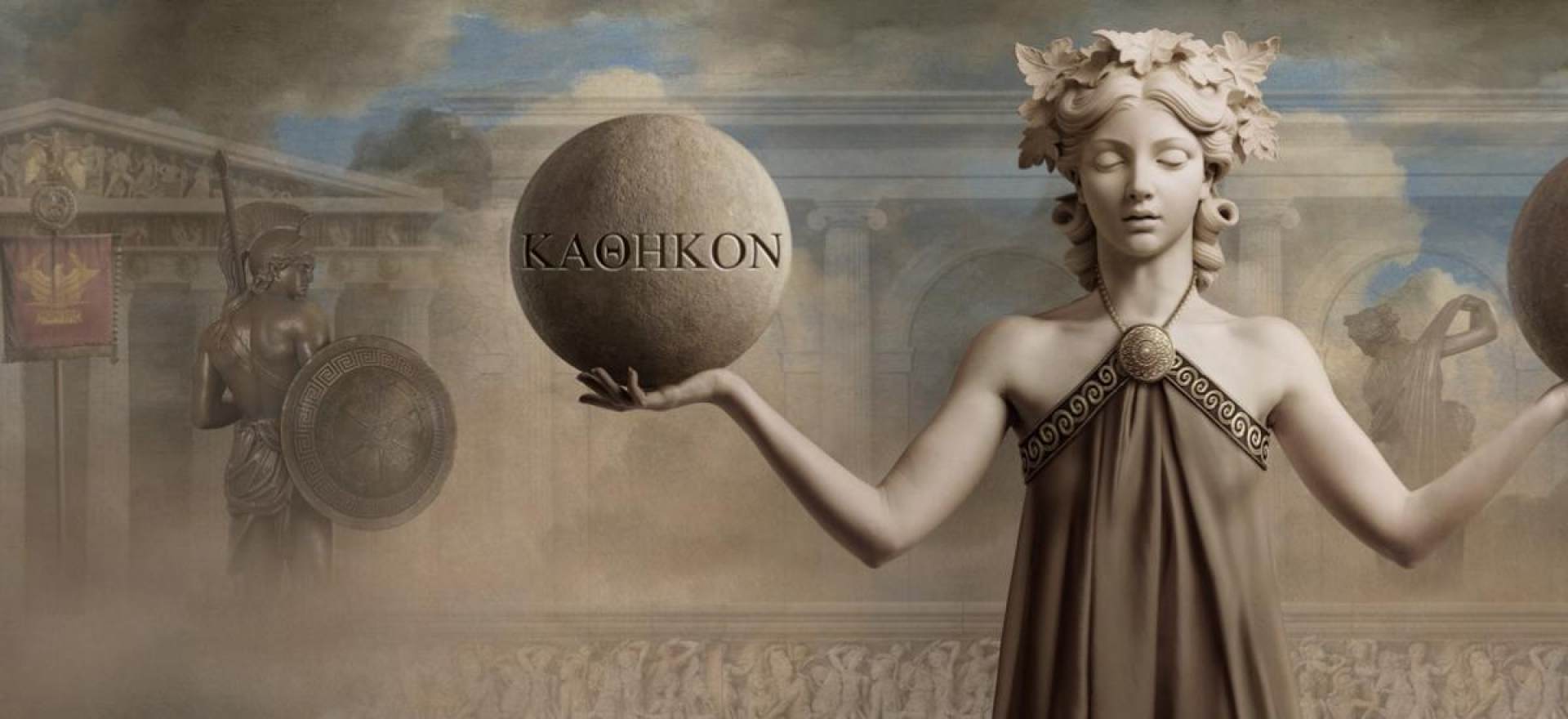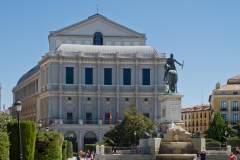Mitridate, re di Ponto
Mo | Tu | We | Th | Fr | Sa | Su |
Claus Guth returns to the Teatro Real this season to present the new production of one of Mozart's earliest operas: Mithridate, re di Ponto. The Teatro Real premiere of an opera characterised by a large number of arias requiring vocal virtuosity performed by an exceptional cast.
Serious opera in three acts
Music by Wolfgang Amadeus Mozart (1756-1791)
Libretto by Vittorio Amedeo Cigna-Santi, based on Giuseppe Parini's translation of Mithridate, by Jean Racine
Premiered at the Teatro Regio Ducale in Milan on 26 December 1770
Stage premiere at the Teatro Real
New production of the Teatro Real, in co-production with Oper Frankfurt and the Gran Teatre del Liceu
Synopsis
Place: around the Crimean port of Nymphæum
Time: 63BC during the conflict between Rome and Pontus
Prologue
Mitridate, having suffered a heavy defeat in battle, is presumed dead. This incorrect news is passed by Arbate, the Governor, to Aspasia (Mitridate's fiancée) and to Farnace and Sifare (Mitridate's sons).
Act 1
Scene 1
Arbate, the governor of Nymphæum, welcomes Sifare. We learn that Sifare resents his brother, Farnace, because of his brother’s strong ties with their enemies, the Romans. Arbate pledges his loyalty to Sifare. Aspasia pleads for Sifare to help her against advances by Farnace. He accepts her plea and reveals his love for her.
Scene 2
Farnace makes his advances to Aspasia. She refuses, supported by Sifare, who protects her from his forceful brother. News arrives that Mitridate is alive and is approaching the city. Arbate urges the brothers to conceal their differences and greet their father. The brothers agree to hide their feelings for Aspasia. Farnace conspires with Marzio, Roman legionary officer, against Mitridate.
Scene 3
Mitridate arrives on the shores of Nymphæaum with Princess Ismene, daughter of his ally the King of Parthia. Mitridate wants Farnace to marry Ismene, his promised bride. Ismene is in love with Farnace but senses problems and is worried about her future. Arbate tells Mitridate that Farnace is pursuing Aspasia, not mentioning Sifare. The jealous Mitridate swears revenge on Farnace.
Act 2
Scene 1
Farnace scorns and threatens Ismene. She tells Mitridate, who suggests that she should marry Sifare. Mitridate asks Aspasia for immediate marriage but she hesitates, proving to him that she is unfaithful. Aspasia confesses love to Sifare but they both agree to part to save their honour. Sifare plans to leave and Aspasia is troubled by the conflict between love and duty.
Scene 2
Mitridate is aware of Farnace's plot against him with the Romans; he plans his revenge, despite Marzio’s offer of peace, and arrests Farnace to execute him. Ismene rescues the prince, who admits his treachery but implicates Sifare. Mitridate tricks Aspasia into admitting her love for Sifare and swears revenge. Aspasia and Sifare wish to die together, in fear of Mitridate’s threats.
Act 3
Scene 1
Ismene, still in love with Farnace, tries to convince Mitridate to forgive Aspasia. The Romans attack and Mitridate leaves for battle. Aspasia contemplates suicide by poison. Sifare also wants to die, and joins his father in the battle.
Scene 2
Marzio liberates Farnace and promises him the rule of Nymphæum. Farnace changes his mind, deciding to side with Mitridate.
Scene 3
Defeated, Mitridate commits suicide, avoiding captivity. Before he dies he gives his blessing to Sifare and Aspasia and forgives Farnace, who now agrees to marry Ismene. All four pledge to free the world from Rome.
Program and cast
Artistic team
Musical conductor: Ivor Bolton
Stage director: Claus Guth
Set design: Christian Schmidt
Costumes: Ursula Kudrna
Lighting: Olaf Winter
Cast
Mitridate: Juan Francisco Gatell __ 23, 26, 28 mar; 1, 4, 8 apr
Siyabonga Maqungo __ 25, 30 mar; 5, 9 apr
Aspasia: Sara Blanch __ 23, 26, 28 mar; 1, 4, 8 apr
Ruth Iniesta __ 25, 30 mar; 5, 9 apr
Sifare: Elsa Dreisig __ 23, 26, 28 mar; 1, 4, 8 apr
Vanessa Goikoetxea __ 25, 30 mar; 5, 9 apr
Farnace: Franco Fagioli __ 23, 26, 28 mar; 1, 4, 8 apr
Tim Mead __ 25, 30 mar; 5, 9 apr
Ismene: Pretty Yende __ 23, 26, 28 mar; 1, 4, 8 apr
Sabina Puértolas __ 25, 30 mar; 5, 9 apr
Marzio: Juan Sancho __ 23, 26, 28 mar; 1, 4, 8 apr
Jorge Franco __ 25, 30 mar; 5, 9 apr
Arbate: Franko Klisovic
Orchestra of the Teatro Real
Teatro Real
The Teatro Real is Spain's leading opera house. It is considered to be the top institution in the country in the music and performing arts field.
The Teatro Real Foundation is chaired by the King and Queen of Spain. It relies on two public administrations that took part in its creation: the Ministry of Education, Culture and Sports, and the Comunidad de Madrid (Regional Government of Madrid). The Foundation is governed by a Board of 31 trustees. The Board of Trustees elects the President of Board and the Executive Commission as proposed by the Ministry of Education, Culture and Sport. The Foundation is a public entity and there is an important role played by civil society in its governance and sponsorship.
The objective of the Teatro Real is to create a venue for the most talented singers, conductors ands stage directors from around the world. Its artistic mission is expressed in programming which seeks excellence by combining classical and contemporary lyrical repertory to appeal to audiences of all ages and interests. Introducing young people and children to opera is of particular concern. All this, along with the Principal Chorus and Orchestra of the Teatro Real, the most up to date technological expertise and the large number of in house productions on stages around the world has firmly positioned the Teatro Real in Spain and abroad.

 EN
EN DE
DE IT
IT FR
FR ES
ES RU
RU JP
JP RO
RO
 Seating plan
Seating plan 